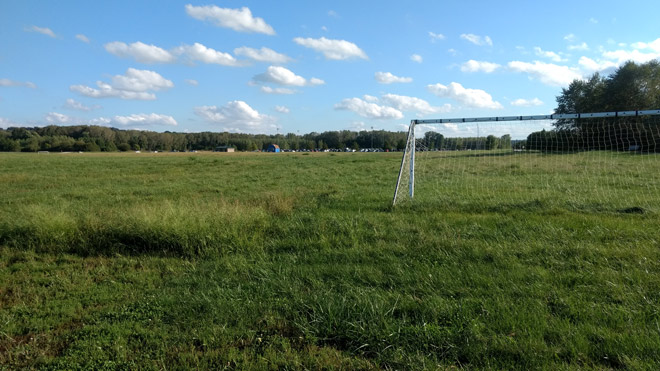
By JAMES BARR
Teenagers, and other younger age groups, have been facing high stress levels for years and the COVID-19 pandemic not only made it worse, but it also took away many of the ways to handle stress. After school sports were one of the main ways to help people this age, but they also helped with child care for their parents, and helps create many developmental skills.
A paper published in @APADiv56 Psychological Trauma takes a closer look at traumatic stress in the age of #COVID19 and calls for researchers and clinicians to close critical gaps and adapt to new realities. Read more: https://t.co/sdjgafnT58 pic.twitter.com/ZMl6AQ4mNh
— APA Journals (@APA_Journals) October 22, 2020
The Importance of After School Life
As schools begin to open, the challenge of daycare for children isn’t the same as it was at the beginning of the pandemic, but as after school programs stay cancelled, daycare expenses still exist. According to a survey on care.com, the average weekly cost of an at home sitter was about $243 a week, and according to costhelper.com many public school programs cost about $100-$500 a week. These prices compared to the average annual cost of $671 annually in order to play an after school sport. Many new expenses entered people’s lives because of COVID, and child care is just another added to the ongoing list.
Teens have been reporting incredibly high stress rates since 2013, higher than some adults. These younger age groups have also had higher reports of anxiety and depression and overall worse mental health than any other age group. Part of the rising problem is the lack of stress management for teenagers . A reported 42% of teens were not doing enough to manage and 13% were not doing anything at all, according to the APA.
. A reported 42% of teens were not doing enough to manage and 13% were not doing anything at all, according to the APA.
MDH recommends all youth returning to school/taking part in sports/activities get tested every 2 weeks through the end of the school year. Their families are also encouraged to get tested. Find locations state-wide for free COVID-19 testing: https://t.co/9UDjHvbs4N pic.twitter.com/FD8ZDsXfe4
— Minneapolis Public Schools (@MPS_News) May 3, 2021
There are many, mental and physical, health benefits for children when it comes to this type of activity. Over this past year, children have been in and out of school and with some not being able to see or really speak to any friends or people their age, after school activities help improve a child’s social skills. Sports teach children how to work together in a healthy manner, and helps them learn to cope with success and failure. Sports also teach discipline, and work ethics when it comes to practicing and training regularly.

There have been studies of an academic advantage too, when a child plays a sport. These sports need memorization skills, repetition and learning, which are all skill sets used in the classroom. Goal-setting is a required life trait in order to accomplish anything, and showing to
First Hand Experiences
Shannon Nicolai, 50, is a mother of five children, who have all through the years been in and out of many different sports. Now that three of them have moved on from that part of their life, Kooper and Kiera, the two youngest, have been the only ones who have had their experiences affected by the COVID-19 pandemic.
Kooper, 13, on top of living a middle schoolers life, also plays on two different soccer teams and a basketball team. None of which are connected to the school. Since things have begun to open up more, and the vaccine has been available to the public, Kooper has been able to return to playing, but last year was a different story. In 2020, one of the few sports that were still running was Koopers travel soccer team.

“When he’s not out on a field or a court unfortunately he’s in his room playing xbox,” Nicolai said laughingly.
Kooper has spent a large fraction of his free time playing video games since the lockdown. Going from a full school schedule and playing on three different teams, to a lockdown could create a lot of open space in a middle school student’s life.
Kiera, 12, has recently started playing soccer again, along with softball, which both have returned. Unfortunately, Kiera wasn’t as lucky as her brother last year and was not able to play soccer, or anything, last year. Also, unlike her brother Kooper, Kiera spends most of her free time with her friends.
Living in the small town of Hamburg, New Jersey, neither of their social lives have been heavily impacted by the pandemic. Although they haven’t been able to see their teammates, the local friends on the street have still been around.
“Hopefully they’re going to return in September, but there is still no word on them yet,” Nicolai said when asked about after school sports returning.
These extracurricular activities are more than just a sport or something to do for developing children, they have more of an impact than most people are aware of. The future may show differences in these generations due what the COVID-19 pandemic has caused to them.
Leave a Reply
You must be logged in to post a comment.